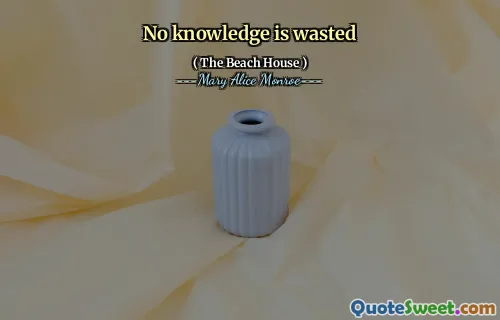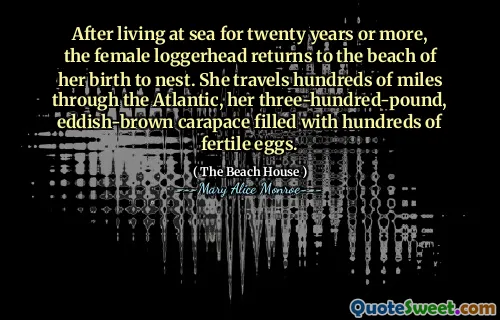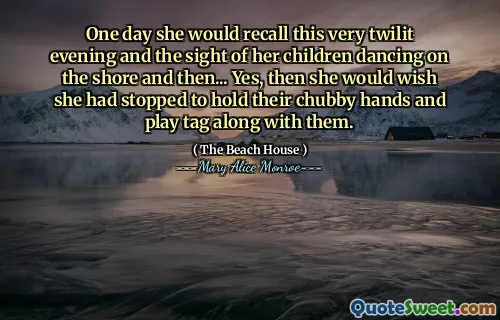
A woman saw those turtle tears and instinctively knew that the turtle mother wept for her children. A mother knew of all the predators that awaited her young, of the swift currents that might lead them astray, of the dazzle of dangerous lights, of the complicated nets that could entangle them and of the many years of solitary swimming. She wept because she could not protect them from their fate.
In the narrative from "The Beach House" by Mary Alice Monroe, a woman witnesses a poignant moment where a turtle mother appears to mourn for her offspring. This scene evokes a deep understanding of a mother's innate fears and concerns for her young ones as she faces the harsh realities of the world. The turtle's tears symbolize the pain and helplessness that any mother feels when she cannot safeguard her children from potential dangers.
The passage encapsulates the universal struggle of motherhood, highlighting the turtle's awareness of the various threats that lie ahead. These include predators, hazardous environments, and the unpredictability of life in the ocean. The mother's sorrow reflects not just a personal loss, but a broader theme of vulnerability and the bittersweet nature of parenting, where love and worry are intertwined as she prepares her offspring for their journey into an uncertain future.











